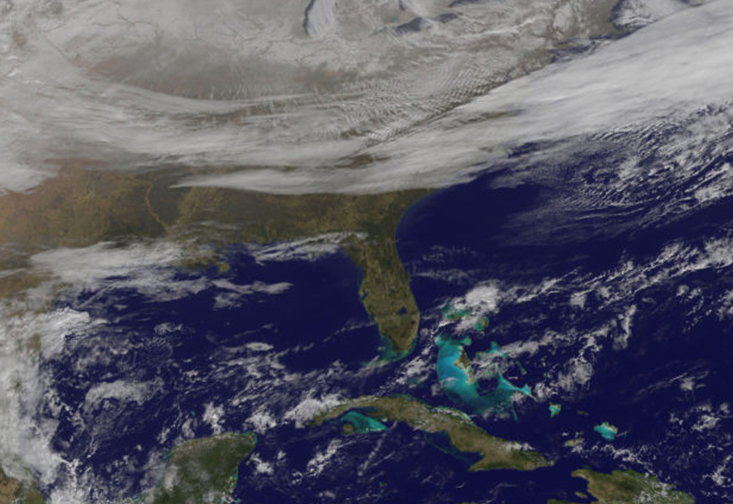Interdisciplinary researchers at USF’s St. Petersburg campus are investigating the pandemic’s effect on air quality in communities across Florida. Using an assortment of data, the researchers will team with Duke Energy and local high schoolers to examine key environmental impacts brought about by the coronavirus lockdown, aiming to better understand the health and socioeconomic consequences of changes in air quality.
The research team received $25,000 from USF Research & Innovation, one of fourteen studies supported by nearly $320,000 in seed grants for COVID-19 research partnerships.
“As USF researchers have been asked to work on the scientific aspects related to COVID-19, we decided to look at the crisis from an interdisciplinary perspective” said the study’s principal investigator, Yasin Elshorbany, assistant professor of atmospheric chemistry and climate change. “How did the pandemic affect air quality? What are the societal and psychological consequences of those environmental changes? And what communities are most vulnerable?”
In order to answer those questions, Elshorbany and his team, which includes assistant professor of anthropology Heather O’Leary, professor of marine science Steve Murawski and Marwa El-Sayed of Embry-Riddle Aeronautical University, will use air quality data collected from six Florida cities: Tampa, Orlando, Miami, Gainesville, Jacksonville and Tallahassee. By harvesting a wide range of data from remote sensing technology, ground stations, health metrics and social factors, the researchers hope to gain a more comprehensive picture of the pandemic’s indirect impact on communities.
A number of studies have looked at the improved air quality as a result of the coronavirus shutdown, largely due to a decrease in vehicle and airplane emissions. Few however have considered the environmental impact of subsequent increases in emissions from other sources, such as residential power supplies, and how these changes affect the harmful secondary air pollutants like ozone and particulate matter. Elshorbany and his team will consider how these impacts relate to COVID-19 health and socioeconomic outcomes.
“A good deal of people’s risk factors come from the lives they lead and how they move around their cities,” said O’Leary. “But it’s not as if it’s simply a personal choice. There are complex structural barriers for people who are medically, financially and socially vulnerable. We need to evaluate the socio-cultural dimensions of air quality as we would with other environmental risks.”
The research team has established two community partnerships to help conduct the study.
- Duke Energy will provide the researchers with data about energy consumption patterns before and during the pandemic.
- High school students at Lealman Innovation Academy will assist as junior research assistants in O’Leary’s EcoFem Lab by collecting and interpreting data gathered from Pinellas county.
Students will map societal parameters, such as income and race, and air quality tracers, such as nitrogen dioxide and carbon monoxide, as a result of the pandemic. Working with a geographic information systems (GIS) specialist, the students will construct a story map that illustrates the social dimensions of air quality to their communities and the wider public.
For Latesia Coleman, a Lealman teacher who will help oversee student participation, the benefit of interdisciplinary projects is that they offer students broader context through which to understand their various school subjects.
“Students can connect the work they are doing in math class with the statistics that appear in their science, history and informational English texts,” said Coleman, a master’s of education student at USF’s St. Petersburg campus and research associate in O’Leary’s EcoFem Lab. “Using GIS to study issues that relate to what’s going on in their community motivates students to engage in finding solutions to some of our most challenging problems. Our classroom inquiries will allow students to discuss their findings, gain an understanding of their personal connection to history, evaluate data in real-time and develop higher order thinking abilities.”
From this initial study, the research team plans to develop a more comprehensive proposal, which they will submit to fundings agencies such as the National Science Foundation and National Institute of Health.
